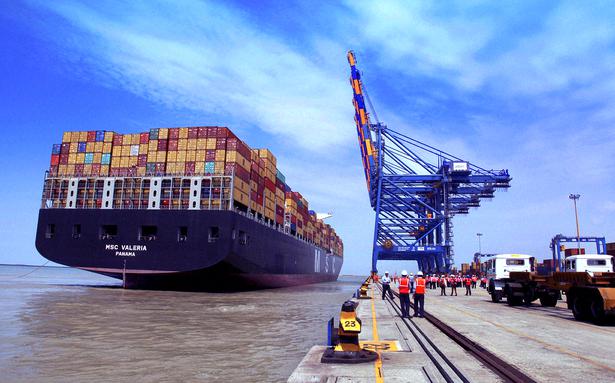The Indian Adani Group has signed a contract for two major energy projects in the Northern Province of Sri Lanka. six months after it bagged a strategic port terminal project in Colombo, which it is now implementing with controlling interests.
There is still no official announcement or statement on the agreement to jointly carry out renewable energy projects in Mannar on the northwest coast of Sri Lanka and Pooneryn which is located south of the Jaffna Peninsula by the Sri Lankan side, Adani Group or Indian authorities, which raises questions in some circles about the apparent lack of transparency in an international agreement. “Although not announced, the CEB also signed a Memorandum of Understanding with India’s Adani Green Energy Ltd,” which is based in Colombo Sunday times reported.
Revealing the details of the MoU, Sri Lanka’s weekend newspaper thesunday morning said the two renewable energy projects in which the Adani Group is involved aim to generate a combined capacity of 500MW at a cost of US$500 million. Both projects are in Northern Province, where New Delhi objected to a Chinese energy project last year, citing its proximity to the Tamil Nadu coast.
The agreement was signed on Friday, the same day that India’s National Thermal Power Corporation (NTPC) and Ceylon Electricity Board (CEB) agreed to construct a 100MW solar power project at Sampur in eastern Trincomalee district.
The development comes months after Adani Group Chairman Gautam Adani visited Sri Lanka and held talks with President Gotabaya Rajapaksa about potential investments in the island nation. During his visit, his team visited the northern district of Mannar to explore the potential for wind power projects. India’s involvement in renewable energy projects in Sri Lanka coincides with the Rajapaksa government’s push towards clean energy.
Sri Lanka has peak daily demand of over 2000MW and is currently experiencing severe fuel and electricity shortages, causing hours of power outages across the country, which civic groups have protested.
Skepticism about Indian support
Sri Lanka is also in the midst of its worst economic crisis in years, prompting the government to seek help from a variety of sources. India has pledged $1.4 billion so far this year and Finance Minister Basil Rajapaksa is expected to visit New Delhi on Tuesday, his second visit in three months, to secure a further $1 billion in support.
“Very much looking forward to welcoming the Honorable Finance Minister @RealBRajapaksa to #India next week. His visit will solidify ongoing efforts to further strengthen the Indo-Lanka economic partnership,” India’s High Commission said in a tweet on Saturday.
Meanwhile, India’s aid in Sri Lanka is viewed with skepticism by some. They reflected this sentiment in their widely read Sunday editorial entitled “India’s Strategic Calculations Amid Lanker Suffering.” Sunday times accused New Delhi of resorting to “diplomatic blackmail” by linking emergency financial aid to Colombo with strategic projects and “multiple maritime security deals” to counter China’s “naval expansion”.
“The Reserve Bank of India has $631 billion in reserves. Sri Lanka demands one billion. It was pressured to sign Sampur and other projects before Mr. Rajapaksa came to New Delhi. This is diplomatic blackmail. India has 74 days of oil reserves in stock but finds it so difficult to help a ‘friend and neighbor’ in trouble without flinching, cringing and abandoning its national security interests and neutrality in the name of India’s own ‘strategic calculus’,” according to the editors.



